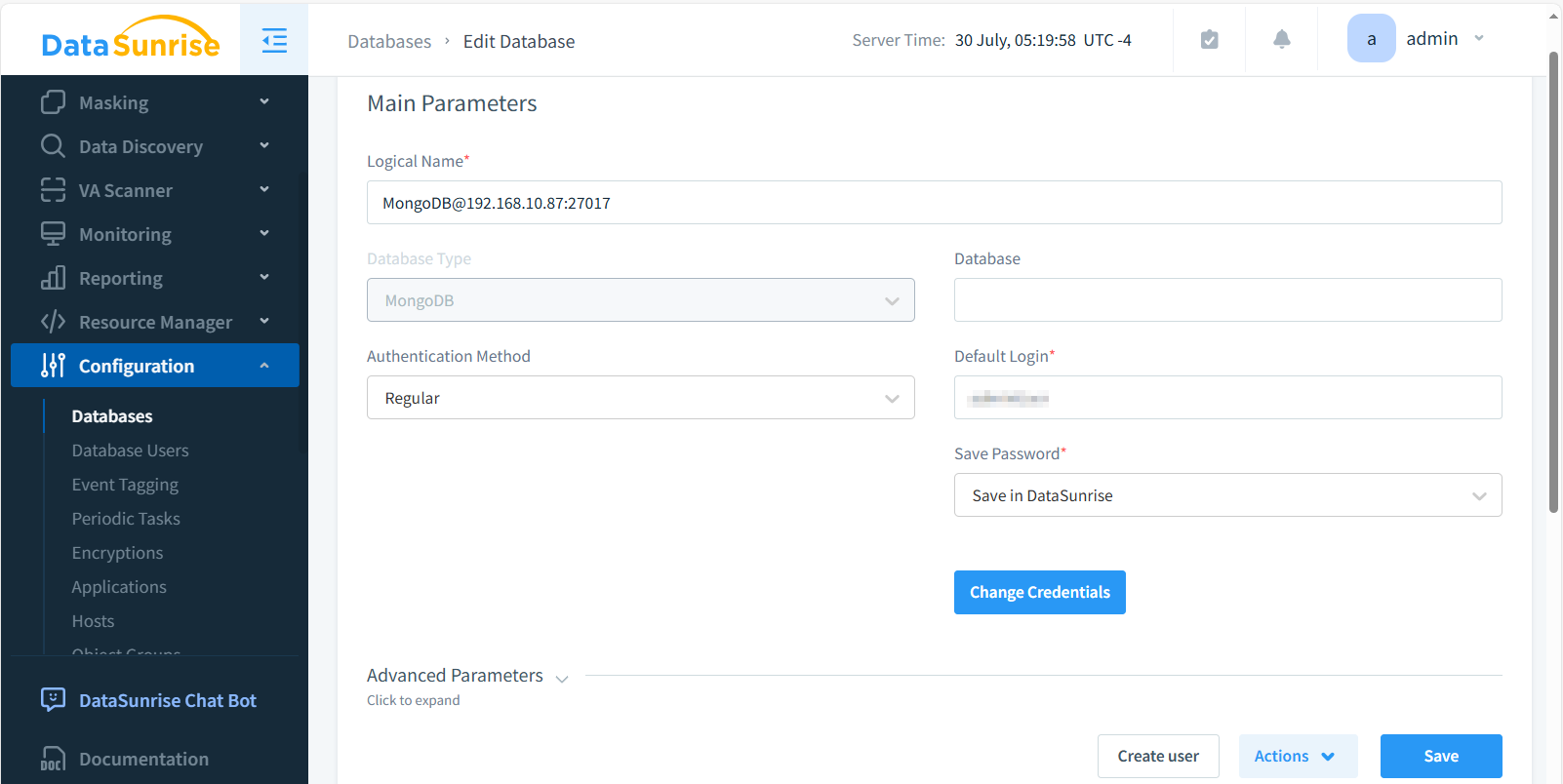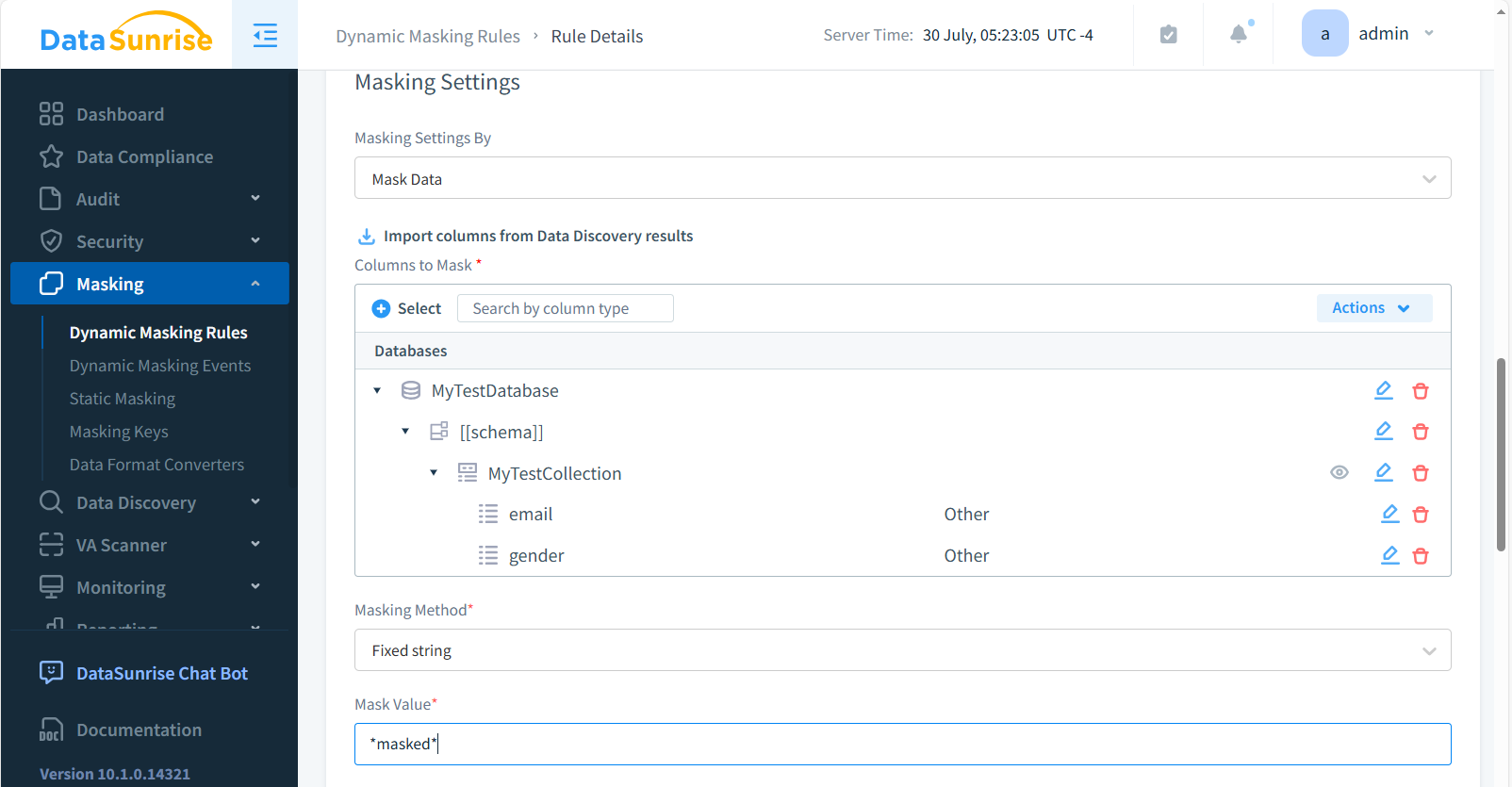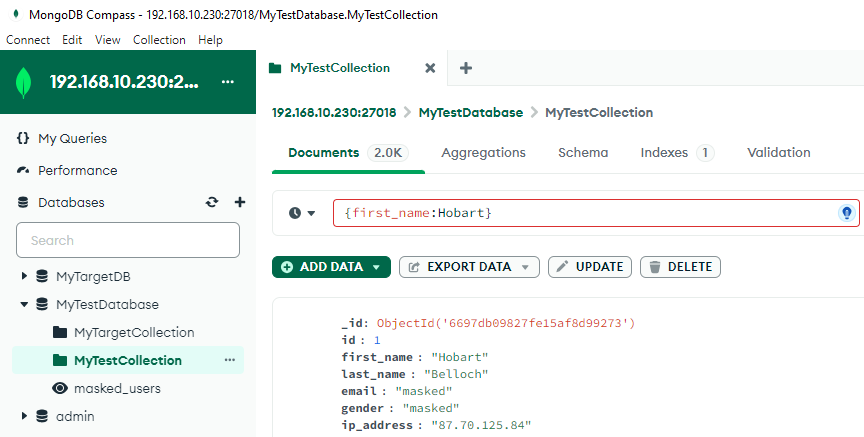
Dynamic Data Masking for MongoDB

Introduction
In today’s digital economy, data has become a critical asset for many organizations, making the protection of sensitive information paramount. Organizations must safeguard customer data, comply with regulations, and maintain trust. Enter dynamic data masking for MongoDB – a powerful tool in the data security arsenal.
Did you know that data breaches cost companies an average of $4.88 million in 2024? This staggering figure highlights the importance of robust data protection measures.
What is Dynamic Data Masking?
Dynamic data masking (DDM) is a security feature that hides sensitive data in real-time. It shows masked data to unauthorized users while allowing authorized users to see the original information. This technique helps organizations protect sensitive data and meet regulatory compliance requirements.
MongoDB’s Native Data Masking Capabilities
MongoDB offers built-in features for data masking and query redaction. These tools help protect sensitive information directly within the database.
View Commands for Data Masking
MongoDB uses view commands to implement data masking. Here’s a simple example:
db.createView(
"maskedCustomers",
"customers",
[
{
$project: {
name: 1,
email: { $concat: [{ $substrCP: ["$email", 0, 2] }, "****@example.com"] },
phone: { $concat: ["***-***-", { $substrCP: ["$phone", -4, 4] }] }
}
}
]
)This view masks email addresses and phone numbers, showing only partial information.
Query Redaction
MongoDB also supports query redaction to prevent sensitive data from appearing in logs. For example:
db.runCommand({
aggregate: "customers",
pipeline: [
{ $match: { ssn: "123-45-6789" } },
{ $redact: {
$cond: {
if: { $eq: [ "$level", "sensitive" ] },
then: "$$PRUNE",
else: "$$DESCEND"
}
}}
],
cursor: {}
})This query redacts sensitive fields from the output.
DataSunrise: Enhanced Dynamic Data Masking for MongoDB
While MongoDB’s native capabilities are useful, DataSunrise offers more advanced and flexible dynamic data masking solutions.
Creating a DataSunrise Instance
To set up DataSunrise for MongoDB masking:
- Create your MongoDB instance in DataSunrise.
- Configure masking rules based on user roles and data sensitivity.

Implementing Dynamic Masking
With DataSunrise, you can:
- Create granular masking rules for different users and roles.
- Apply various masking techniques (e.g., substitution, shuffling, encryption).
- Mask data in real-time without modifying the original database.

User Experience
Let’s see how dynamic masking works in practice:
- User A (unauthorized): Sees masked data (e.g., “John D**” instead of “John Doe”)
- User B (authorized): Sees unmasked, original data (“John Doe”)
This approach ensures that sensitive data is protected while maintaining functionality for authorized users. The figure below illustrates ‘masked’ strings replacing email and IP address values.

Benefits of Dynamic Data Masking
Implementing dynamic data masking for MongoDB offers several advantages:
- Enhanced data security
- Simplified compliance with regulations (GDPR, HIPAA, etc.)
- Reduced risk of data breaches
- Maintained data usability for authorized users
- Flexible and customizable protection
Best Practices for Dynamic Data Masking
To maximize the effectiveness of your data masking strategy:
- Identify sensitive data through regular audits.
- Implement least privilege access principles.
- Regularly review and update masking rules.
- Combine masking with other security measures (encryption, access controls).
- Train employees on data security best practices.
Challenges and Considerations
While dynamic data masking is powerful, be aware of potential challenges:
- Performance impact on query execution
- Complexity in managing masking rules
- Ensuring consistency across different environments
- Balancing security with data utility
Address these challenges through careful planning and regular optimization of your masking strategy.
Future Trends in Data Masking
As data protection evolves, expect to see:
- AI-driven masking techniques
- Integration with cloud-native services
- Enhanced automation in rule creation and management
- Improved performance optimization
Stay informed about these trends to keep your data protection strategy current and effective.
Conclusion
Dynamic data masking for MongoDB is a crucial tool for protecting sensitive data and ensuring regulatory compliance. By implementing robust masking strategies, organizations can significantly reduce the risk of data breaches and maintain customer trust. Whether using MongoDB’s native capabilities or advanced solutions like DataSunrise, the key is to develop a comprehensive approach to data security.
Remember, data protection is an ongoing process. Regularly review and update your masking strategies to stay ahead of evolving threats and compliance requirements.
DataSunrise offers user-friendly and flexible tools for database security, including audit, masking, and data discovery features. Visit our website at DataSunrise.com for an online demo and to explore how we can enhance your MongoDB data protection strategy.
